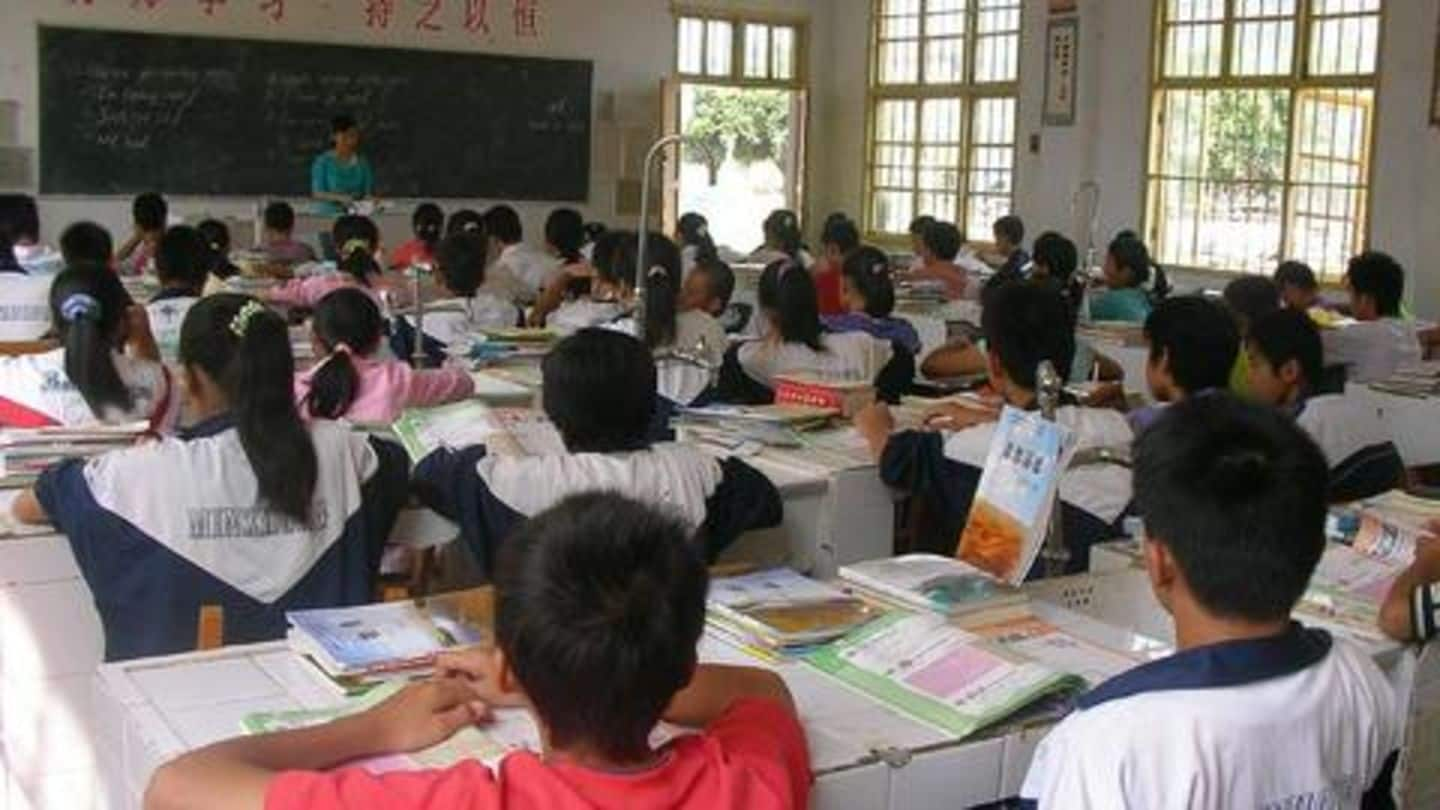
China tracking school students through 'intelligent uniforms'
What's the story
The time has come for the mischievous school students in China to realize they don't have an escape anymore. Because now, the officials are watching them like a hawk. Students of more than 10 schools in Guizhou Province, one of China's poorer provinces, and the Guangxi region have to now wear the chip-embedded 'intelligent uniforms', which can track their movements. Here's more.
Details
Uniform will trigger alarm if student tries to bunk school
The brains behind the uniform are those of Guizhou Guanyu Technology Co. Wondering how it works? Well, the 'intelligent uniforms' will allow parents, teachers, and officials to keep track of students' movements and the exact time they arrive and leave school. Also, if a student tries to bunk school, the uniform will trigger an alarm that would notify the parents, teachers, and officials.
No tricks
If you try to swap uniforms, alarm would set off
If you think the alarm system can be tricked by swapping uniform, you cannot be more wrong. Because, if a student swaps uniforms, another alarm will be triggered. But how does it recognize the face? Well, there is also a facial recognition device installed at the entrance of the school, which is equipped to match a student's face with the chip-embedded uniform.
Washable
The uniform can be washed more than 500 times
The uniforms are indeed very 'smart' because even though there's an electronic chip embedded, it can withstand temperatures up to 150 degrees and can be washed over 500 times. It can detect if a student has fallen asleep in class. Also, with the help of facial and thumb recognition, students can make cashless purchases in school. Parents can set purchasing limit through an app.
Criticism
Move has drawn flak from social media
The uniforms seemed to have brought good results, as a school principal in Guizhou Province told media that overall attendance of students has increased since the introduction of the uniforms. However, the move has also been condemned on social media. A netizen wrote," Is this going to school or going to prison?" "Is this a violation of human rights?," asked another.